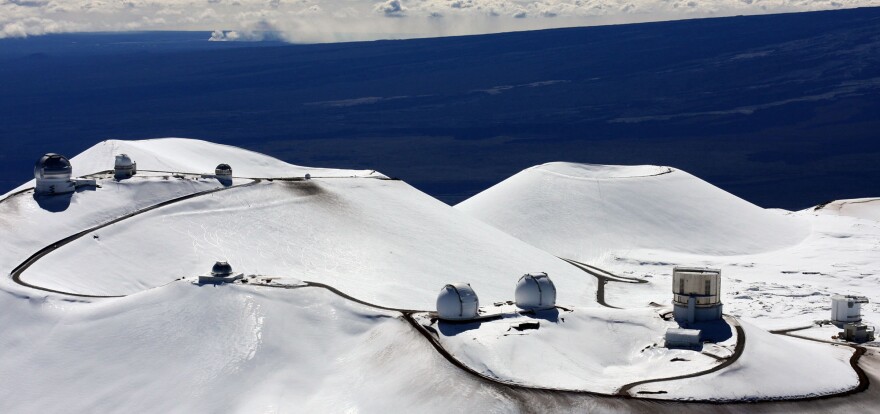Hawaiʻi lawmakers introduced legislation on Wednesday to transfer the management of Maunakea from the University of Hawaiʻi to a nine-member stewardship authority over the next three years.
House Bill 2024 would require the new authority to create a framework to limit astronomy development on the mountain, including a plan to return part of the mauna to its natural state — though the legislation doesn't set a time frame for doing so.
The measure would also ban commercial use and activities above Hale Pohaku, and set up an entryway to Maunakea to provide outreach, collect fees, and close access in case of emergencies.
Under the bill, the new authority would spend the next three years developing a comprehensive, long-term plan for the management of land uses and human activities on Maunakea.
The governing body would include Native Hawaiian cultural practitioners and those with land management experience.
House members of the Mauna Kea Working Group introduced the measure, along with a final report outlining recommendations for future mauna management. The legislation has yet to be scheduled for a hearing.
Hilo Rep. Mark Nakashima, who chaired the Working Group, says the group’s initial report released in December received more than 200 emails.
Comments ranged from support of astronomy and continued management of Maunakea by the university, to support for the proposed management structure.
In its prior response to the working group’s report, the university told the Honolulu Star-Advertiser the effort not only puts the future of astronomy on the mountain at risk, but it underestimates the complexities and costs of managing access to public lands.
Astronomers wouldn't have a seat on the body, but the authority would establish an advisory group that would provide guidance on astronomy.
“The Maunakea Observatories thank the leadership and members of the Working Group for their efforts in creating the report underlying House Bill 2024, and for including a representative of the Observatories as a member of the Working Group to contribute to the process,” Hilton Lewis, director of W. M. Keck Observatory, said in an email statement to the Honolulu Civil Beat. “We openly and fully acknowledge the importance of Maunakea to Native Hawaiians, and support Native Hawaiian involvement in the future governance of Maunakea.”
However, Lewis urged officials to consider several revisions to the bill including “specific, realistic timelines for establishing this new governing entity; a viable long-term funding model that outlines a plan to replace the budgetary contributions currently made by the University of Hawaii; and the inclusion of an astronomy representative on the governing board.”
Maunakea's summit has about a dozen telescopes that are among the world's most advanced observatories. Many Native Hawaiians consider the summit sacred and say the telescopes desecrate the land.
In 2019, more than 2,000 protesters gathered at Maunakea to block the construction of a new observatory called the Thirty Meter Telescope.








